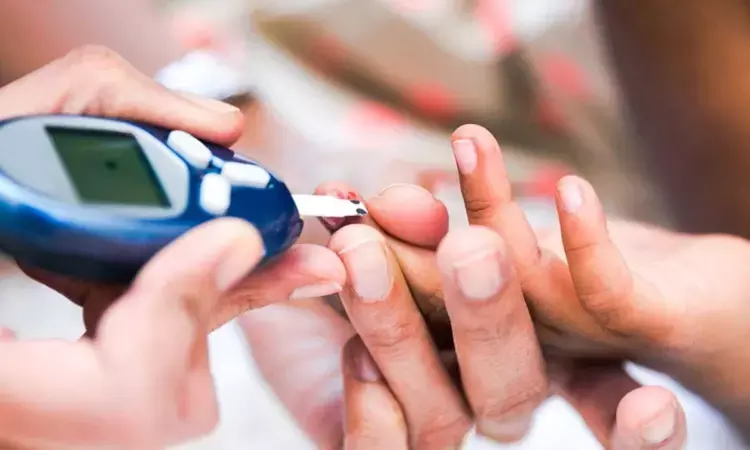- Home
- Medical news & Guidelines
- Anesthesiology
- Cardiology and CTVS
- Critical Care
- Dentistry
- Dermatology
- Diabetes and Endocrinology
- ENT
- Gastroenterology
- Medicine
- Nephrology
- Neurology
- Obstretics-Gynaecology
- Oncology
- Ophthalmology
- Orthopaedics
- Pediatrics-Neonatology
- Psychiatry
- Pulmonology
- Radiology
- Surgery
- Urology
- Laboratory Medicine
- Diet
- Nursing
- Paramedical
- Physiotherapy
- Health news
- Fact Check
- Bone Health Fact Check
- Brain Health Fact Check
- Cancer Related Fact Check
- Child Care Fact Check
- Dental and oral health fact check
- Diabetes and metabolic health fact check
- Diet and Nutrition Fact Check
- Eye and ENT Care Fact Check
- Fitness fact check
- Gut health fact check
- Heart health fact check
- Kidney health fact check
- Medical education fact check
- Men's health fact check
- Respiratory fact check
- Skin and hair care fact check
- Vaccine and Immunization fact check
- Women's health fact check
- AYUSH
- State News
- Andaman and Nicobar Islands
- Andhra Pradesh
- Arunachal Pradesh
- Assam
- Bihar
- Chandigarh
- Chattisgarh
- Dadra and Nagar Haveli
- Daman and Diu
- Delhi
- Goa
- Gujarat
- Haryana
- Himachal Pradesh
- Jammu & Kashmir
- Jharkhand
- Karnataka
- Kerala
- Ladakh
- Lakshadweep
- Madhya Pradesh
- Maharashtra
- Manipur
- Meghalaya
- Mizoram
- Nagaland
- Odisha
- Puducherry
- Punjab
- Rajasthan
- Sikkim
- Tamil Nadu
- Telangana
- Tripura
- Uttar Pradesh
- Uttrakhand
- West Bengal
- Medical Education
- Industry
Young Type 1 Diabetes Patients Experience Extreme Stress, Require Education and Psychological Therapy: Study

Poland: Young individuals with Type 1 Diabetes Mellitus face significant psychological stress due to lifelong insulin dependence and continuous glucose management. The study found that stress levels increase with higher BMI and longer disease duration, while better acceptance of the condition is linked to improved glycemic control (lower HbA1c). Education and psychological therapy can help reduce stress and enhance disease management outcomes.
- Stress levels among young adults with Type 1 Diabetes Mellitus (T1DM) were found to be significantly high.
- Many participants reported fatigue, anxiety, and psychological strain due to the chronic and demanding nature of diabetes management.
- Median AIS and PSS-10 scores reflected moderate acceptance of the illness but considerable stress levels.
- Individuals with higher BMI and longer disease duration experienced greater stress, particularly those with frequent nighttime hyperglycemia.
- Women with primary education, those in relationships, and individuals with comorbid conditions such as hypertension, hypothyroidism, or lipohypertrophy reported higher stress levels.
- Patients treated with multiple daily insulin injections (MDI) experienced more stress compared to those using advanced insulin delivery systems.
- Better acceptance of the illness was observed among individuals who were single, nonsmoking, and not maintaining manual (“paper”) self-monitoring journals.
- Regular contact with diabetes educators and nursing staff at specialized clinics was linked to improved acceptance of the disease.
- Higher acceptance of illness correlated with lower HbA1c levels and fewer daytime hyperglycemic episodes, indicating that psychological adjustment positively influences metabolic control.
Dr Kamal Kant Kohli-MBBS, DTCD- a chest specialist with more than 30 years of practice and a flair for writing clinical articles, Dr Kamal Kant Kohli joined Medical Dialogues as a Chief Editor of Medical News. Besides writing articles, as an editor, he proofreads and verifies all the medical content published on Medical Dialogues including those coming from journals, studies,medical conferences,guidelines etc. Email: drkohli@medicaldialogues.in. Contact no. 011-43720751


